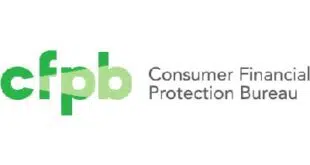MasterCard Inc. on Wednesday posted continued strong growth in debit cards during the first quarter, including in fee revenue. The No. 2 U.S. card network also took issue with the findings of a Federal Reserve report released on Tuesday showing interchange for regulated card issuers has plunged since the Durbin Amendment took effect Oct. 1.
MasterCard reported U.S. debit card purchase volume of $111 billion in the first quarter, up 19.4% from a year earlier. U.S debit purchase transactions grew 19.7% to 2.72 billion. The dollar-volume growth nearly doubled the 10.7% year-over-year growth in 2011’s first quarter.
“We have not changed our fee structure to issuers on the debit business,” said MasterCard chief financial officer Martina Hund-Mejean, which is reflected in the 17% increase in net revenues to $1.8 billion from $1.5 billion in 2011’s first quarter.
In the U.S., MasterCard has “significantly improved” its position in debit, and now has the capability to process about half of U.S. debit cards, Ajay Banga, MasterCard president and chief executive, said in a conference call with analysts Wednesday morning.
The effect of the Durbin amendment has been to maximize MasterCard’s presence in debit, Banga said, noting that before the regulations the MasterCard brand was on 25% of U.S. debit cards and now is enabled on about half, including three of the largest portfolios in the market. One of the law’s requirements is that issuers include at least two unaffiliated debit brands on their cards. This rule, which took effect in April but for which issuers have been preparing for months, caused banks that had been using, for example, Visa Inc. and Visa’s Interlink debit network to adopt another debit network.
MasterCard’s U.S. credit card numbers also showed gains, although not as large as debit’s. Purchase volume hit $124 billion, up 7.8% from $115 billion a year earlier, on 1.46 billion transactions, up 6.7%.
During the conference call, Hund-Mejean disputed the findings of the Fed’s report on the impact of the Durbin amendment. In the report and accompanying spreadsheet released on Tuesday, the Fed said the average per-transaction interchange fee collected by regulated financial institutions, those with more than $10 billion in assets, declined 45% in 2011’s fourth quarter to 24 cents from 43 cents in 2009.
The decline came after the Fed’s cap of 21 cents and 0.05% of the sale, plus a 1-cent fraud-prevention adjustment, took effect Oct. 1. The cap implemented price controls mandated by the Durbin Amendment in 2010’s sweeping Dodd-Frank Act and affects about two-thirds of U.S. debit cards. Debit interchange for exempt debit card issuers remained steady at 43 cents, the Fed said.
The Fed’s new data as well as its 2009 figures come from the general-purpose card networks as well as 13 electronic funds transfer networks that provide PIN-debit card-acceptance services at the point of sale to merchants.
While MasterCard is still “working through the details of the report,” the findings don’t correspond to the network’s experience, Hund-Majean said.
“When looking at published network fees, there seems to be some disconnect in the comparisons,” she said.
For instance, the Fed compared the network fees from the fourth quarter of 2011 with full-year 2009, Hund-Majean said. Any fourth quarter is usually a high-spend quarter, which means that issuers pay effectively lower fees because fees are based on volume, she said.
In addition, the Fed also requested different categories of network fees for each of the periods, which may have resulted in an “apples-and-oranges” comparison, Hund-Majean said.





